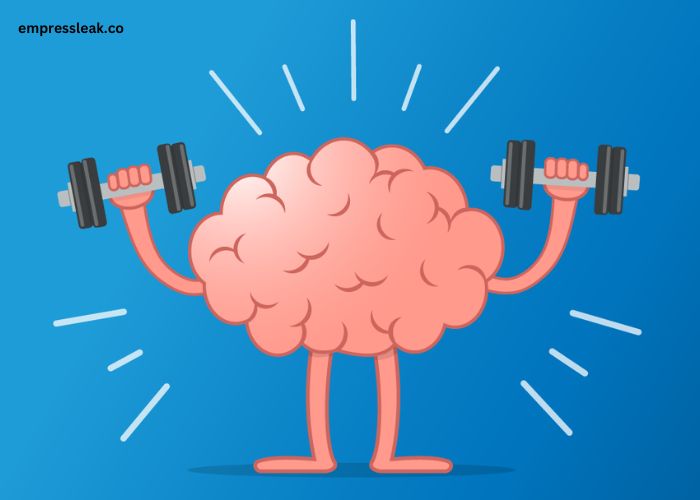Mental health is just as crucial as physical health, yet it often takes a backseat in our busy lives. With increasing work pressure, financial stress, and social obligations, maintaining mental well-being has become a challenge. However, prioritizing mental health is essential for a fulfilling and balanced life. This article explores practical ways to stay strong, build resilience, and cultivate a positive mindset.
Understanding Mental Health
Mental health encompasses emotional, psychological, and social well-being. It influences how we think, feel, and behave in daily life. A sound mental state helps us handle stress, relate to others, and make informed decisions. Factors affecting mental health include genetics, life experiences, family history, and environmental stressors.
Common Mental Health Issues
- Anxiety Disorders: Persistent worry or fear that disrupts daily life.
- Depression: Prolonged sadness, hopelessness, and loss of interest in activities.
- Bipolar Disorder: Extreme mood swings between highs (mania) and lows (depression).
- Post-Traumatic Stress Disorder (PTSD): Anxiety resulting from traumatic experiences.
- Obsessive-Compulsive Disorder (OCD): Repetitive thoughts and behaviors.
Recognizing these issues is the first step in seeking help and implementing self-care strategies.
Practical Ways to Stay Mentally Strong
1. Develop a Healthy Routine
A structured daily routine can significantly improve mental health. Consider the following practices:
- Sleep Well: Aim for 7-9 hours of quality sleep per night to restore energy and balance emotions.
- Eat Nutritious Food: A diet rich in vegetables, fruits, lean proteins, and whole grains supports brain function.
- Stay Hydrated: Drinking enough water improves cognitive functions and energy levels.
2. Exercise Regularly
Physical activity releases endorphins, which are natural mood lifters. Try:
- Cardio Workouts: Running, cycling, and swimming reduce stress and anxiety.
- Strength Training: Lifting weights enhances self-esteem and focus.
- Yoga & Meditation: Improve relaxation and mindfulness.
3. Practice Mindfulness and Meditation
Mindfulness techniques help reduce stress and improve emotional regulation. Ways to incorporate mindfulness include:
- Deep Breathing: Inhale deeply through your nose, hold for a few seconds, and exhale slowly.
- Gratitude Journaling: Write down three things you’re grateful for daily.
- Guided Meditation Apps: Apps like Headspace or Calm can assist in building a mindfulness habit.
4. Build Strong Social Connections
Social interactions play a key role in mental well-being. Engage in:
- Regular Communication: Stay connected with family and friends through calls or meetups.
- Support Groups: Join local or online communities that resonate with your interests.
- Volunteering: Helping others fosters a sense of purpose and fulfillment.
5. Manage Stress Effectively
Chronic stress negatively impacts mental health. Reduce stress by:
- Prioritizing Tasks: Use planners or digital tools to organize daily responsibilities.
- Setting Boundaries: Learn to say no to avoid burnout.
- Engaging in Hobbies: Pursuing activities you enjoy, like painting or playing music, helps relaxation.
6. Seek Professional Help When Needed
Mental health professionals provide guidance and support for coping with challenges. Therapy options include:
- Cognitive Behavioral Therapy (CBT): Helps identify and change negative thought patterns.
- Counseling: Offers a safe space to express feelings and gain perspective.
- Medication: In severe cases, prescribed medications can help manage symptoms effectively.
7. Limit Screen Time and Digital Consumption
Excessive screen time contributes to stress and anxiety. Balance technology use by:
- Setting Screen-Free Hours: Designate certain times of the day without screens.
- Curating Social Media Feeds: Follow positive and inspiring content.
- Practicing Digital Detoxes: Take breaks from devices to focus on offline activities.
8. Develop a Growth Mindset
A growth mindset encourages resilience and continuous learning. Cultivate it by:
- Embracing Challenges: See failures as opportunities to learn.
- Adopting Positive Self-Talk: Replace negative thoughts with constructive affirmations.
- Setting Achievable Goals: Break tasks into smaller, manageable steps.
9. Engage in Nature and Outdoor Activities
Spending time in nature improves mental clarity and reduces stress. Activities to consider:
- Hiking or Walking: Explore parks or trails to connect with nature.
- Gardening: Cultivating plants promotes mindfulness and relaxation.
- Outdoor Yoga: Practicing yoga in natural surroundings enhances mental peace.
10. Maintain a Work-Life Balance
Balancing professional and personal life prevents burnout. Effective strategies include:
- Taking Breaks: Short breaks during work boost productivity and focus.
- Establishing Boundaries: Avoid work-related tasks outside designated hours.
- Spending Quality Time with Loved Ones: Engage in meaningful conversations and activities.
The Importance of Self-Compassion
Being kind to yourself is crucial for mental well-being. Ways to practice self-compassion:
- Acknowledge Your Feelings: Accept emotions without self-judgment.
- Practice Self-Care: Engage in activities that bring joy and relaxation.
- Avoid Comparisons: Focus on personal progress rather than external validation.
Conclusion
Mental health is an ongoing journey that requires consistent effort and self-awareness. By adopting healthy habits, fostering positive relationships, managing stress, and seeking professional help when necessary, we can maintain a strong and resilient mindset. Prioritizing mental health is not a luxury but a necessity for a fulfilling life. Start incorporating these practical strategies today and take charge of your mental well-being.

